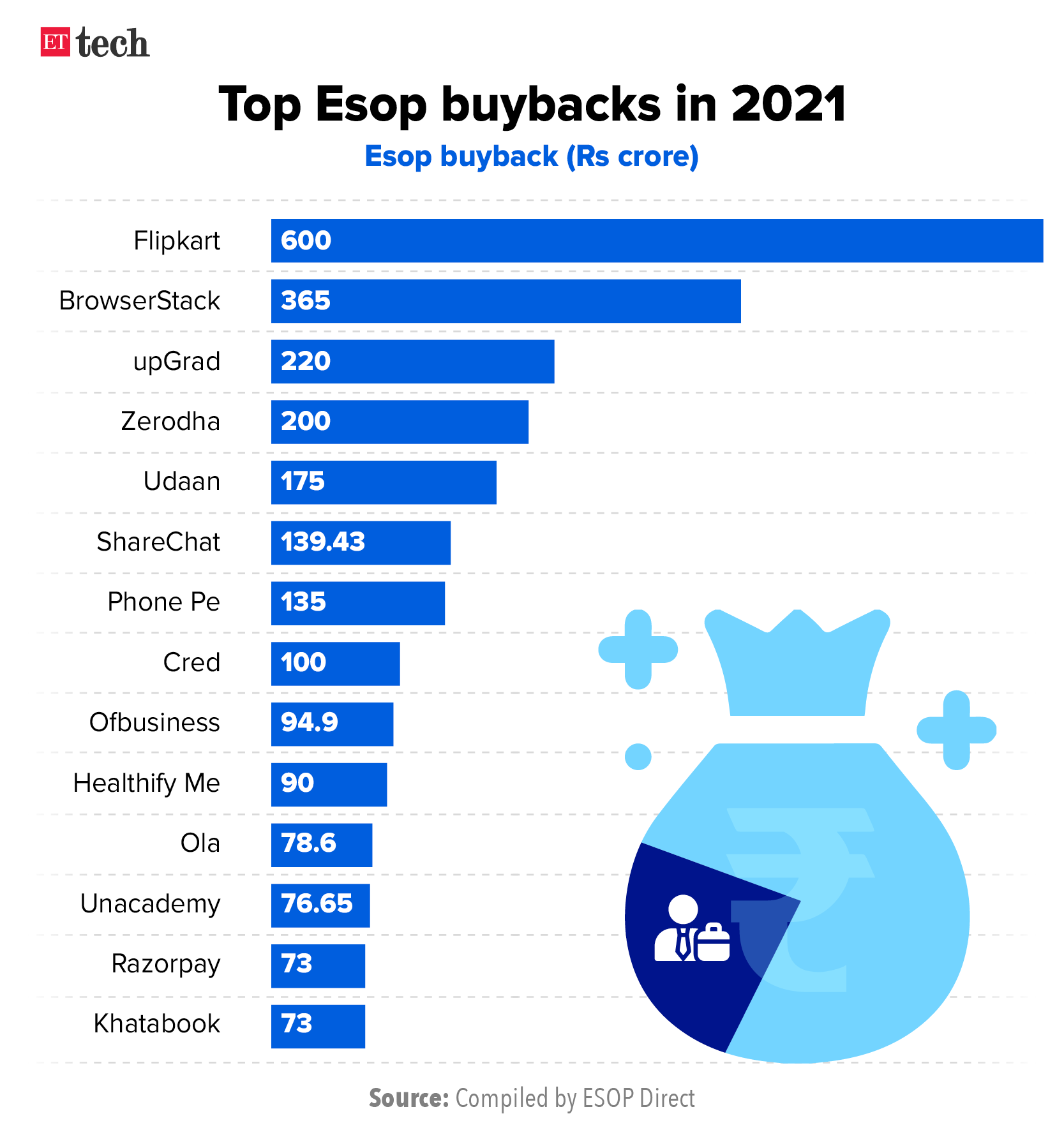Also in this letter:
- Startups buy back stock options worth Rs 3,200 cr in 17 months
- Classify social media sites as publishers, says parl panel
- NoBroker is India’s first proptech unicorn
Bill banning all ‘private’ cryptocurrencies to be introduced in winter session
The government will introduce a bill that bans all “private” cryptocurrencies in India, with certain exceptions, during the winter session of Parliament for consideration and passing. The winter session starts on November 29.
The Cryptocurrency and Regulation of Official Digital Currency Bill, 2021 also seeks to create a framework for an official digital currency to be issued by the Reserve Bank of India.
Also Read: What are Central Bank Digital Currencies?
It is one of 26 pieces of legislation up for consideration in the winter session of Parliament, according to a bulletin issued by the Lok Sabha on Tuesday. “The bill seeks to prohibit all private cryptocurrencies in India. However, it allows for certain exceptions to promote the underlying technology of cryptocurrency and its uses,” said the Lok Sabha bulletin.
- The government had planned to take up the cryptocurrency bill during the budget session earlier this year but deferred the move to hold wider consultations.
Hoping against hope: The crypto industry, which has argued that digital currencies need to be regulated, not banned, is still hopeful there won’t be a complete ban on cryptocurrencies. “While the description of the draft bill appears to be the same as in January 2021, several noteworthy events have occurred since then,” said Nischal Shetty, founder of crypto exchange WazirX. “First, the parliamentary standing committee invited a public consultation, and then our prime minister himself came forward to call for crypto regulations in India.”
Parl panel meeting: The news comes a week after a Parliamentary committee on finance, led by BJP MP and former union minister Jayant Sinha, met with crypto associations and experts. They told the committee that cryptocurrency is here to stay and the challenge is to find ways of regulating it.
Sinha said afterwards that the intent of the meeting was to get a better understanding of the market. “No view has been taken by the committee… This meeting was essentially to gather information from the industry and understand the landscape of cryptofinance,” he said.
He said the committee heard the exchanges on various aspects, including their user base and total investments. Industry players claimed they had 15 million registered users with a total investment of Rs 600 crore, he said.
Prime Minister Narendra Modi also chaired a meeting on cryptocurrencies with officials from the RBI, finance ministry, and the Securities and Exchange Board of India (Sebi) earlier this month.
Is this the middle path? We reported earlier this month that the government was considering a “middle path” on cryptocurrencies as it finalised legislation for the winter session. But the Reserve Bank of India has stuck to its long-held stance of calling for a complete ban on cryptocurrencies, terming them a threat to macroeconomic and financial stability.
Also Read: Cryptocurrency in India: The past, present and uncertain future
NFT stars run into IP disputes: Meanwhile, film stars trying to monetise non-fungible tokens (NFT) could run into intellectual property disputes due to ambiguities over who actually owns the assets — actors or production houses. At the heart of the rights disputes are the NFTs comprising pictures, autographs, dialogues or paintings related to a celebrity.
A top Bollywood actor recently joined hands with a Dubai-based company to launch his own NFTs, but soon found out that people were already selling GIFs featuring him as NFTs.
“When it comes to NFTs, intellectual property rights are one of the biggest concerns not just for the celebrities and artists that have hopped on to it, but also even to some of the large production houses,” said Zulfiquar Memon, managing partner, MZM Legal, a law firm. “In most cases, the NFTs are created in one jurisdiction and then sold internationally. There are many questions presently which relate to jurisdiction, locus and ownership and as to which agency is competent to investigate in case of infringements.”
Startups buy back stock options worth Rs 3,200 crore in 17 months

Since July 2020, nearly 40 Indian startups have bought back stock options worth Rs 3,200 crore from employees, according to data compiled for us by ESOP Direct.
Taking stock: As an increasing number of new-age companies are offering their employees stock options as a form of wealth creation. Over the past few months, the frequency of stock option buybacks has increased, with companies trying to outdo each other in an effort to draw or retain the best talent.
Some firms even have continuous liquidity programmes, which allow employees to cash in their stock options any time over the course of a year.
Who’s doing what? Companies that have conducted large buybacks over the past year include Flipkart (Rs 600 crore), Browserstack (Rs 365 crore), Upgrad (Rs 220 crore), Udaan (Rs 175 crore), PhonePe (Rs 135 crore), Innoviti (Rs 36.5 crore) and Licious (Rs 30 crore).

Last month, Meesho announced its second liquidity programme of $5.5 million (more than Rs 40 crore) in less than a year. “[Stock options] are a wealth creation opportunity for employees, especially in hyper-growth companies, they can create immense value for employees and reward their efforts,” said Ashish Kumar Singh, chief HR officer at Meesho.
On Tuesday, meat and seafood company Licious introduced an “everyday vesting, anytime liquidation” stock option plan for over 1,000 employees. Starting January, all eligible staff members will have their stock options vested daily and will be able to liquidate them at any time, no strings attached.
Tweet of the day
Classify social media sites as publishers, says parliamentary panel

India’s lawmakers have recommended that social media platforms should be classified as publishers and be made responsible for the content on their platforms. They should also have to verify the identity of users, said the report by the joint parliamentary committee (JPC) on the Personal Data Protection Bill, 2019.
The report, which was finally adopted by the members after two years of deliberations, is expected to be tabled during the winter session of Parliament.
Other recommendations: The JPC also called for the establishment of an independent body on the lines of the Press Council of India to regulate social media. This would have huge ramifications for platforms such as Facebook, Twitter, and WhatsApp.
Social media platforms will not be allowed to operate in the country if their parent companies do not have an office in India, the JPC stated.
Row over non-personal data: The inclusion of non-personal data in the legislation, which was meant to be a “privacy bill”, has not gone down well with the industry, which has been requesting the government to keep the two legislations separate.
Dissenting voices: We reported on Tuesday that the committee headed by BJP MP PP Chaudhary adopted the draft report in its final meeting. However, several parliamentarians from the Congress, All India Trinamool Congress (AITC) and other parties submitted dissent notes, objecting to the broad exemptions for the government and its agencies in the bill.
Blume Ventures raises $105 million for fourth India fund

Early-stage venture capital firm Blume Ventures has made the first close of $105 million of its fourth India-dedicated fund, aiming to shore up the targeted $200 million, its biggest so far.
- ET was the first to report on the firm’s plan to launch a new fund in May. Blume expects to make the final close by the end of the financial year.
The VC firm joins a long list of India-focused funds that have raised large sums to deploy in new economy companies amid what has been a record year for startup fundraising in India.
ET reported earlier that A91 Partners, Stellaris Venture Partners, 3one4 Capital and Chiratae have all racked up bigger funds than to their previous editions to stay competitive in a frenetic dealmaking environment.
The unprecedented funding comes in the backdrop of huge liquidity in global markets, greater adoption of digital platforms during the Covid-19 pandemic, and a spate of domestic tech initial public offerings.
Blume, which has backed ed-tech firm Unacademy, used car selling platform Spinny, and beauty e-tailer Purplle, typically comes in during the pre-seed to pre-Series A funding rounds of technology companies and has built a large portfolio over the past decade.
NoBroker is India’s first proptech unicorn after $210 million funding

NoBroker, a Bengaluru-based real estate startup, has raised $210 million in its Series E funding round, led by General Atlantic, Tiger Global and Moore Strategic Ventures.
Valuation: The funding took place at a post-money valuation of $1.01 billion, making NoBroker India’s first property tech—or proptech—unicorn and the 36th unicorn minted amid unprecedented funding this year. It was last valued at $400 million when it raised funds in April 2020.
The valuation jump comes on the back of increased buying and selling of real estate, the company’s additional offerings, and a drop in interest rates post-Covid.
NoBroker will use the funds to build its product and technology team, go deeper into existing markets and enter more markets, for marketing, and to build NoBroker Hood, its “gated-community” app and marketplace.
One-stop shop: The Bengaluru-headquartered startup was founded by Saurabh Garg, Akhil Gupta and Amit Kumar Agarwal in 2013. Garg said, “In the past couple of years we have transformed ourselves from just a real estate transaction platform to a one-stop-shop. And this has given us a huge boost because clearly the number of transactions is increasing and customers are finding a lot more value in our services,” said.
Covid boost: The startup said it also saw a boost in demand for home buying during Covid. “A huge number of transactions are coming from end-use customers, not investors who want to flip real estate quickly. So the demand has been robust,” said Gupta, adding that sees this trend continuing in the near future.
What it does: NoBroker operates a brokerage-free real estate platform and captures the entire customer journey—everything from listing a house to hiring packers and movers, securing a home loan, painting and cleaning services, legal services and rent payments, among other things.
It claims to have more than 1.5 crore registered users across six cities—Bengaluru, Mumbai, Pune, Chennai, Hyderabad and Delhi-NCR—but hasn’t revealed how many of them pay for its services.
What is proptech? Property technology or proptech is the use of technology to help individuals and companies buy, sell or manage real estate. Technology-driven startups in the real estate sector are thus called proptech startups. These are three broad verticals that proptech startups fall into.
- Smart Real Estate: These are tech platforms that facilitate the operation and management of real estate assets. The platforms may simply provide information about building or urban centre performance, or they may directly facilitate or control building services. This sector supports real estate asset, property and facilities management.
- The Shared Economy: This describes platforms that facilitate the use of real estate assets. These can be land or buildings, offices, shops and types of property. This sector supports the real estate occupier markets.
- Real Estate FinTech: These are tech platforms that facilitate the trading of real estate asset ownership. The assets can be buildings, shares or funds, debt or equity. This sector supports the real estate capital markets.
Proptech in India: Proptech startups in India include NoBroker, Magicbricks*, NestAway, 99acres and PropTiger-Housing. (Full disclosure: *Times Internet, which publishes ETtech, is the owner of Magicbricks).
A report by Housing.com in March said that despite the pandemic, India’s proptech sector attracted over $551 million in investments in 2020, more than the $549 million they raised in 2019.
The report noted that while the majority of transactions in India’s estimated $1.4 billion real estate industry are still conducted offline, more than 50% of real estate buying decisions start with an online search. This, it said, showed the growing influence of proptech companies in India. It estimated that the potential market for proptech firms could be one billion people by 2025.
Need an Indian alternative to SWIFT payment system, says Parl panel

India should develop an indigenous alternative to the SWIFT payment system to better protect privacy of domestic financial data and boost the economy, the Joint Parliamentary Committee that is looking into the Personal Data Protection Bill, 2019 has suggested.
The panel has recommended that an alternative indigenous financial system be developed on the lines of similar systems elsewhere, such as Ripple (USA), INSTEX (EU), etc.
Quote: “The Committee observes that data protection in the financial sector is a matter of genuine concern worldwide, particularly when through the SWIFT network, privacy has been compromised widely. Indian citizens are engaged in huge cross-border payments using the same network,” the panel said in its report, which ET has reviewed.
Other Top Stories By Our Reporters
Haber raises $20 million in Series B funding: Pune-headquartered Haber, which makes AI-driven industrial robots said it has raised $20 million in Series B funding, taking its total funds raised to $27 million.
TCS to help Swiss Re set up a cloud-based digital workspace: TCS has expanded its eighteen-year-long strategic partnership with Swiss Re, to help the Zurich-based reinsurance company build a more social and open digital workspace leveraging cloud computing.
Global Picks We Are Reading

























